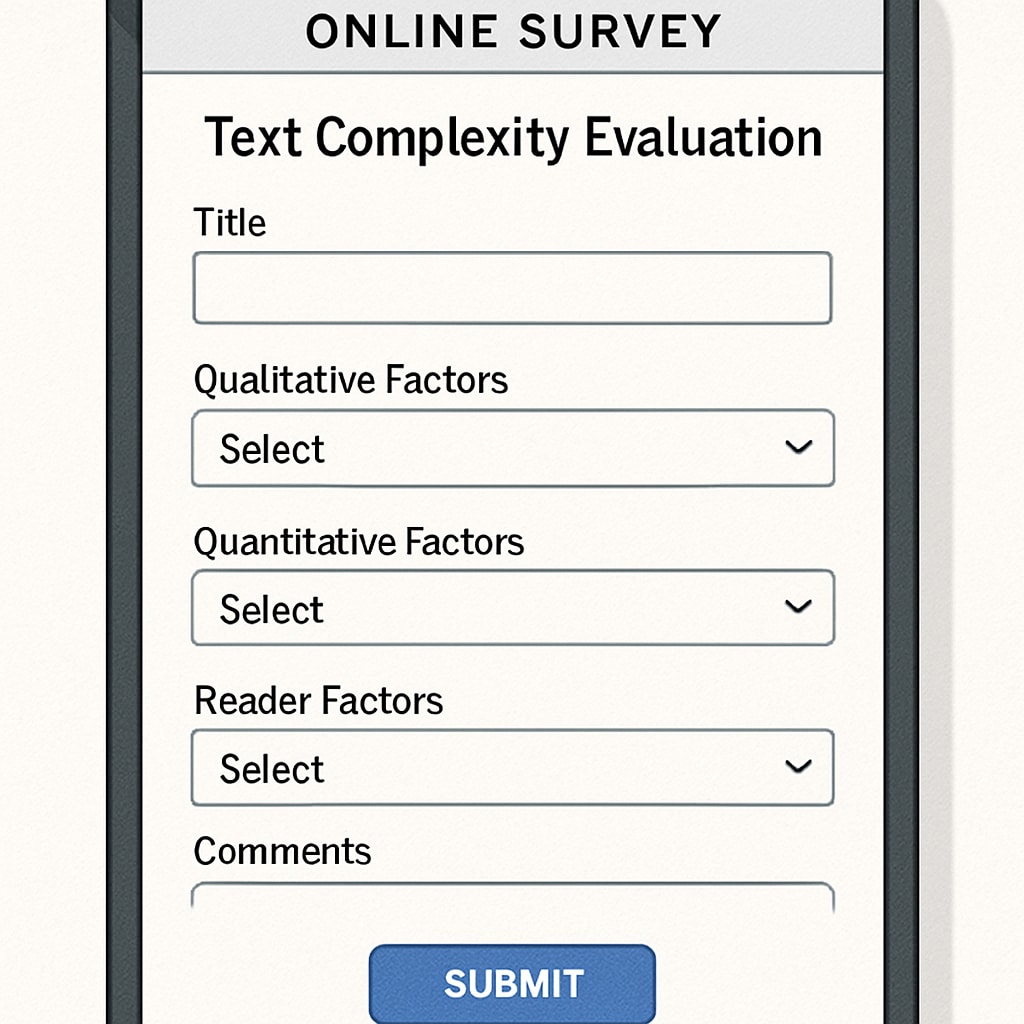Reading comprehension is a cornerstone of education, shaping students’ ability to process and analyze information independently. To ensure that reading materials align with students’ capabilities, evaluating text complexity is vital. This article highlights an exciting opportunity for elementary and middle school teachers to contribute their expertise to a study on reading comprehension, teacher volunteers, and text complexity. By dedicating just 30 minutes, educators can play a significant role in refining how texts are assessed and leveled. This research aims to create a more effective and scientifically-based system for selecting reading materials tailored to diverse student needs.
Why Teachers’ Perspectives Matter in Text Complexity Research
Teachers are not only curriculum implementers but also crucial observers of how students engage with texts. Their insights into what makes a reading passage challenging or accessible are invaluable for understanding text complexity. While current systems for assessing text complexity often rely on algorithms or readability formulas, these methods can overlook qualitative factors such as cultural relevance, vocabulary nuance, and sentence structure.
By participating in this study, teachers can provide a real-world perspective that complements existing quantitative tools. For example, educators might identify how background knowledge or thematic content affects comprehension, insights that algorithms cannot capture. This collaboration bridges the gap between theoretical research and practical classroom application.

What Participation Involves
Joining the study is straightforward and respects teachers’ busy schedules. Participation involves reading a set of short passages, answering a few questions about their perceived complexity, and reflecting on how students in specific grade levels might respond to the material. The entire process takes approximately 30 minutes and can be completed online at your convenience.
By contributing to this research, teachers help build a more nuanced understanding of text complexity. This research will ultimately support the development of a more accurate reading material leveling system, ensuring that texts are appropriately challenging and engaging for students at varying proficiency levels.

The Long-Term Impact of Your Contribution
Improving how reading materials are evaluated and leveled has far-reaching implications. For students, it means access to texts that are neither too difficult nor overly simplistic, fostering better engagement and comprehension. For teachers, it means having a reliable tool to select texts that align with learning objectives and students’ abilities, reducing the guesswork involved in lesson planning.
Moreover, this study contributes to the broader field of literacy research. By incorporating teacher feedback, the study adds a layer of qualitative understanding that can refine existing methods of assessing text complexity. Organizations and educators worldwide can benefit from these findings, creating a ripple effect that extends beyond individual classrooms.
How to Get Involved:
- Visit the study’s official website to sign up and access the materials online.
- Set aside 30 minutes to complete the evaluation process.
- Share this opportunity with colleagues who might be interested in contributing.
Learn more about reading comprehension on Wikipedia or explore Britannica’s insights on literacy development.
Final Thoughts on Teachers as Key Contributors
Teachers bring a wealth of experience and understanding that no algorithm or formula can replicate. By participating in this study on reading comprehension, teacher volunteers, and text complexity, educators have an opportunity to shape how reading materials are evaluated and used in classrooms. Your insights are not just valuable—they are essential. Together, we can unlock the complexities of reading comprehension and create a brighter future for students everywhere.
Don’t miss this chance to make a meaningful impact on literacy education. Sign up today and be part of this groundbreaking research!
Readability guidance: This article uses short paragraphs and clear subheadings to enhance readability. Key points are summarized in a list format, and transition words are used to ensure smooth flow between sections.


